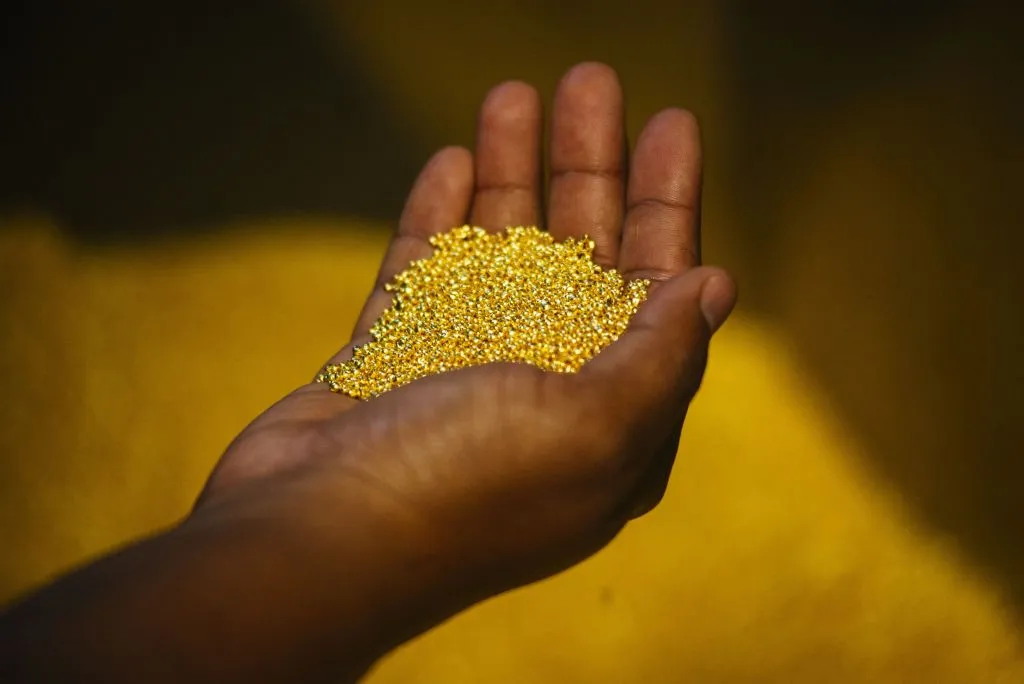Mali wins $160m in gold mining dispute after detaining British businessman
4 min read
Mali is one of Africa's top gold producers

Mali is one of Africa's top gold producers
Mali’s military government has reached a settlement worth $160 million with Australian mining company Resolute Mining following a tense dispute involving the company’s British CEO and two other employees. The three executives were unexpectedly detained ten days ago while traveling to the capital, Bamako, for what they had anticipated would be routine negotiations. The arrests have sparked international attention, raising concerns about the growing risks for foreign companies operating in the West African nation.
Resolute Mining, which owns a gold mine in Mali, confirmed on Sunday that it would pay $80 million from its existing cash reserves as part of the settlement. The remaining $80 million will be paid in installments over the coming months. This deal comes after the detentions of Resolute’s British CEO, Terry Holohan, and his colleagues, who were arrested under charges of forgery and damaging public property. The company described the detentions as an attempt by the Malian government to exert pressure on the firm, with some seeing it as a move to extract concessions related to Mali’s desire for a greater share of the profits from the country’s lucrative mining sector.
Mali, one of Africa’s largest gold producers, has long been a destination for international mining companies. However, the country’s military government, which seized power in a coup in 2021, has been rethinking its relationships with foreign businesses, particularly Western entities. Mali is seeking to gain a more significant portion of the wealth generated by the gold industry, which has led to new laws aimed at increasing the state’s control over mining operations.
As part of the terms for Resolute Mining’s payment, the three detained executives must sign a memorandum of understanding with the Malian government, confirming their commitment to the settlement. The release of the executives is contingent upon the payment of the initial $80 million, as outlined in a report by the French broadcaster RFI.
The detentions of Holohan and his colleagues come amid rising tensions between Mali and foreign mining companies, many of which are based in Western countries. The military junta, led by President Col. Assimi Goïta, has been actively challenging the influence of Western powers in Mali, particularly since it came to power in the 2021 coup. Goïta’s government has sought to reshape Mali’s political and economic alliances, including pivoting towards Russia for security and trade relationships, which has caused unease in Western capitals.
The country’s mining sector, once dominated by foreign companies, is a major contributor to Mali’s economy. However, the Malian government has increasingly pushed for reforms that would allow the state to capture a larger share of the profits from the industry. In 2022, Goïta signed a new mining code into law, which raised the maximum stake for state and local investors in mining projects from 20% to 35%. This move has been part of the broader effort to renegotiate terms with foreign companies operating in Mali’s mineral-rich territories.
The settlement between Resolute Mining and Mali is just one of several recent incidents highlighting the country’s new approach to mining and foreign investment. The ongoing crackdown on Western companies is part of a broader trend in Mali and other countries in the region, where governments are seeking to take control of valuable natural resources. Critics argue that these actions could discourage foreign investment and damage Mali’s reputation as a stable place for mining operations, but the government insists that such measures are necessary to ensure that the country benefits more from its mineral wealth.
For Resolute Mining, the dispute has been costly. The company has said that the financial settlement, while necessary to resolve the immediate crisis, will strain its cash reserves. However, the firm is hopeful that the settlement will pave the way for a more stable operating environment in Mali going forward.
It is unclear when the three executives will be released, but their detentions have underscored the risks faced by foreign companies doing business in Mali, where the political and economic landscape has shifted dramatically in recent years. The country’s military government has made it clear that it intends to assert greater control over its natural resources, and foreign investors will need to navigate this evolving environment with caution.
In conclusion, the $160 million settlement between Resolute Mining and Mali’s military government marks a significant moment in the ongoing tension between foreign companies and the country’s military rulers. While the immediate issue has been resolved, the broader implications for the future of foreign investment in Mali’s mining sector remain uncertain, particularly as the junta continues to push for a larger share of the profits from the country’s gold industry. The detentions and subsequent settlement highlight the challenges of operating in a country undergoing major political shifts and seeking to renegotiate its relationships with global powers.